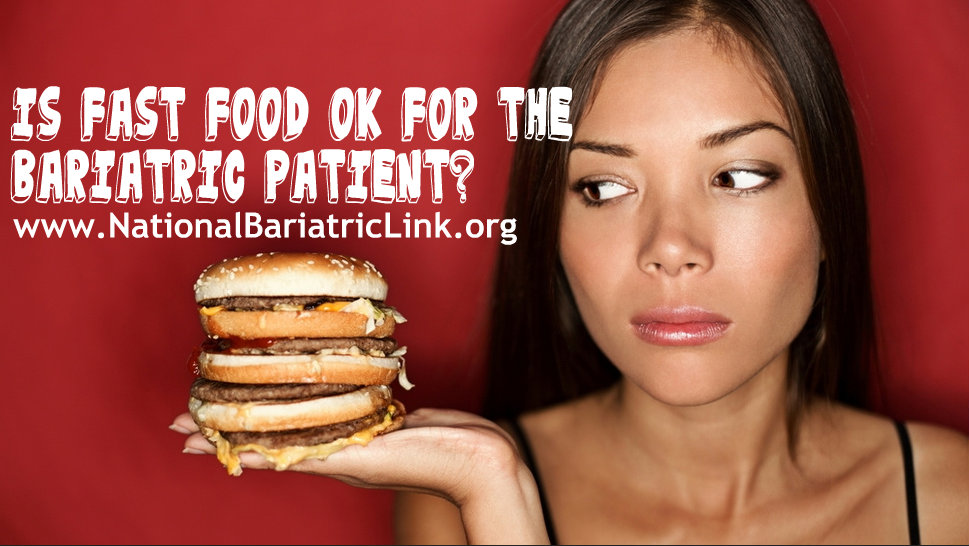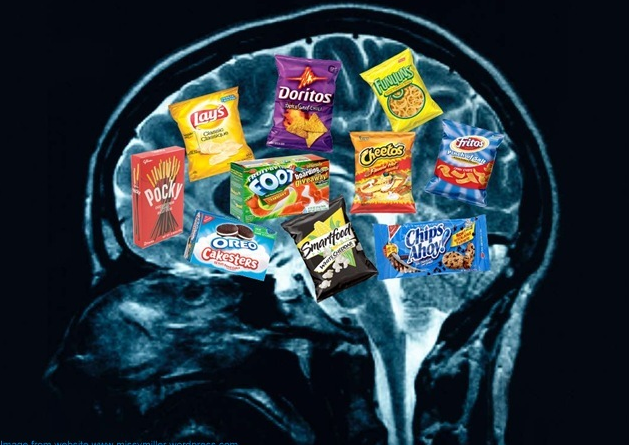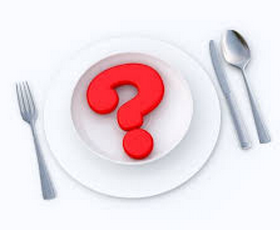Eating fast food is not the ideal choice after having weight loss surgery due to the excessively high calorie options and unhealthy offerings of most menus. Bariatric patients on a low sugar, low fat diet will find that fast food restaurants are not conducive to meeting current weight loss goals. However, there are rare occasions when you will find that a quick fast food meal is necessary.
Is Fast Food Okay for the Bariatric Patient?
You will be surprised to learn that, on rare occasions, fast food may help keep you on the path to healthy weight loss. You can easily curb your appetite with a healthy fast food option when you choose wisely. Here are some instances when fast food becomes the Bariatric patient’s friend.
Starving and Away from Home
After weight loss surgery, your regular eating habits are easily thrown upside down after missing just one meal. There will be times when you will be away from home and unable to buy or prepare a proper meal, one that meets the exact needs of your diet plan. You will become extremely hungry and look for public dining options. Allowing yourself to become exceptionally hungry can be difficult to control, and often leads to overeating.
Once you have allowed yourself to reach the ‘starving’ point, you will be in danger of eating far too much. A good example of this is going to the grocery store without eating first. You will sabotage your budget by buying more food than you would have if you had eaten.
You can avoid reaching this point by purchasing a small sensible meal at a fast food restaurant. It is very important that you choose the healthiest menu options available, avoiding foods that are not advised after weight loss surgery. Many fast food restaurants are beginning to offer yogurt, apple slices and other healthy alternatives, drastically reducing the calorie count for your meal.
Other tips include avoiding the drive-thru window and dining inside so you will eat more slowly, leave off the bun, order grilled food instead of greasy fried options, and avoid carbonated beverages. Water is your best option, consumed thirty minutes before or after your meal.
Reminder of Your Life Changing Decision
Food should never be considered a reward when you are dieting but dining out occasionally can be rather fun. When you choose healthy options at a fast food restaurant, you are reminded of how far you’ve come and how much you’ve changed. As your body becomes accustomed to healthier, more sensible choices, the cravings for fast food will diminish entirely.
After weight loss surgery, many Bariatric patients will decide to remove fast food from their diets entirely. With each new, healthier dining choice made, your attitude and palate also changes. You may find, after a little time has passed, your best-loved fast food menu items have become less satisfying than you recall, describing them as too greasy, too salty and/or too sweet.
Consume Fast Food in Moderation
It is important to realize that fast food can damage your weight loss goals if consumed on a regular basis. Common sense is required with every meal chosen by those who have undergone weight loss surgery. Fast food is not off limits to Bariatric patients, when eaten in moderation. If you make seldom visit fast food restaurants and make only smart menu choices, you will continue to meet or exceed your weight loss goals.



